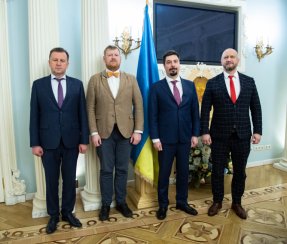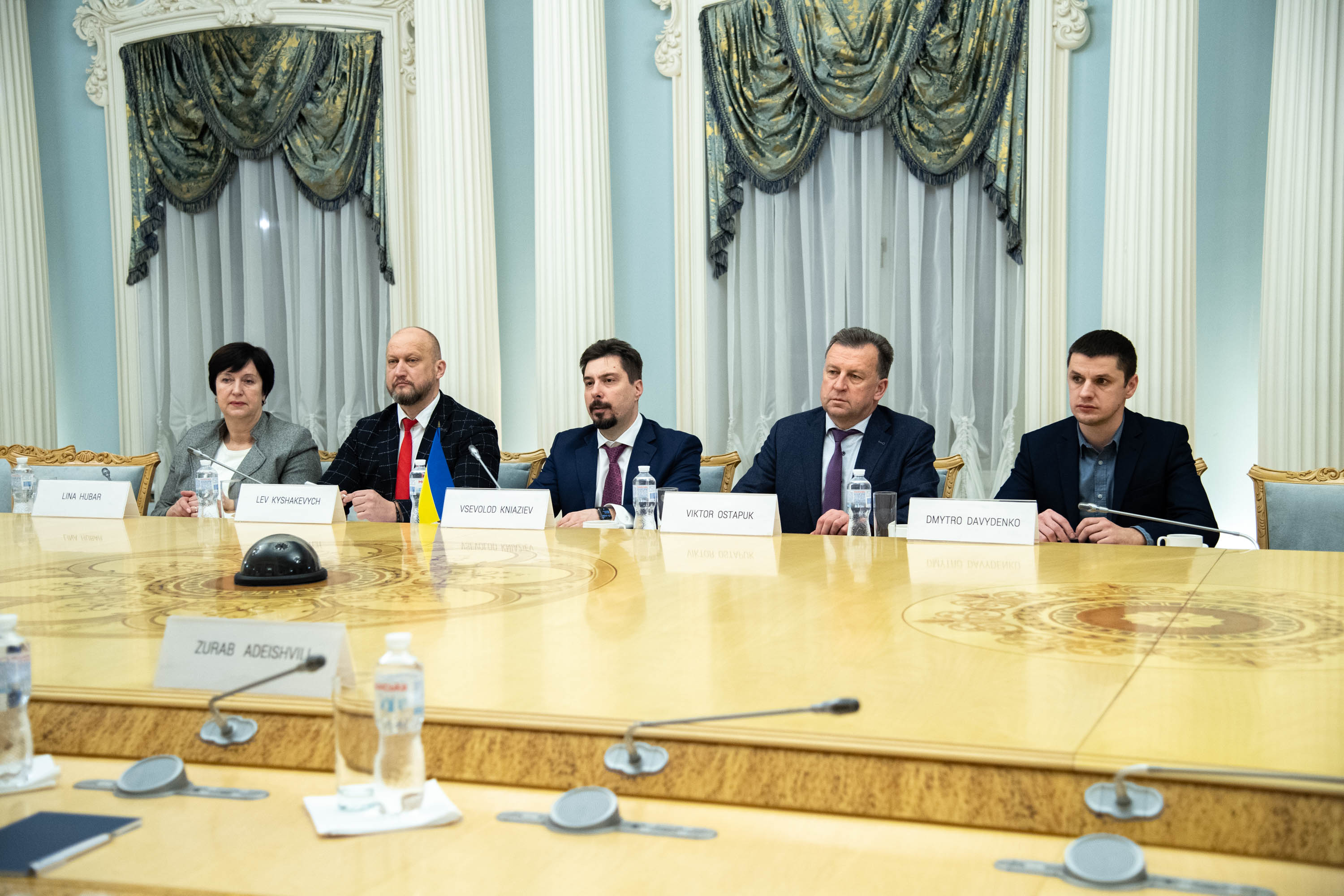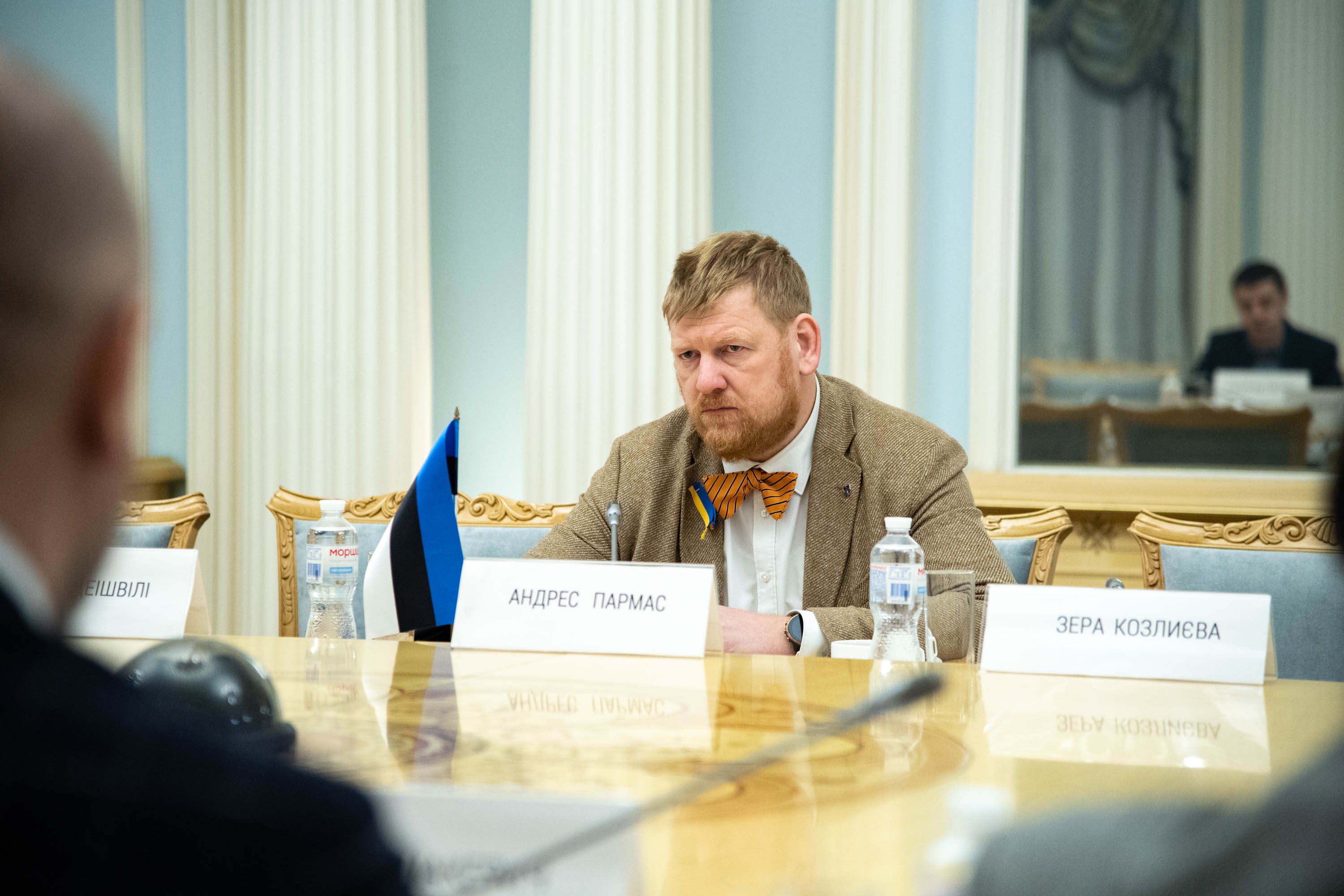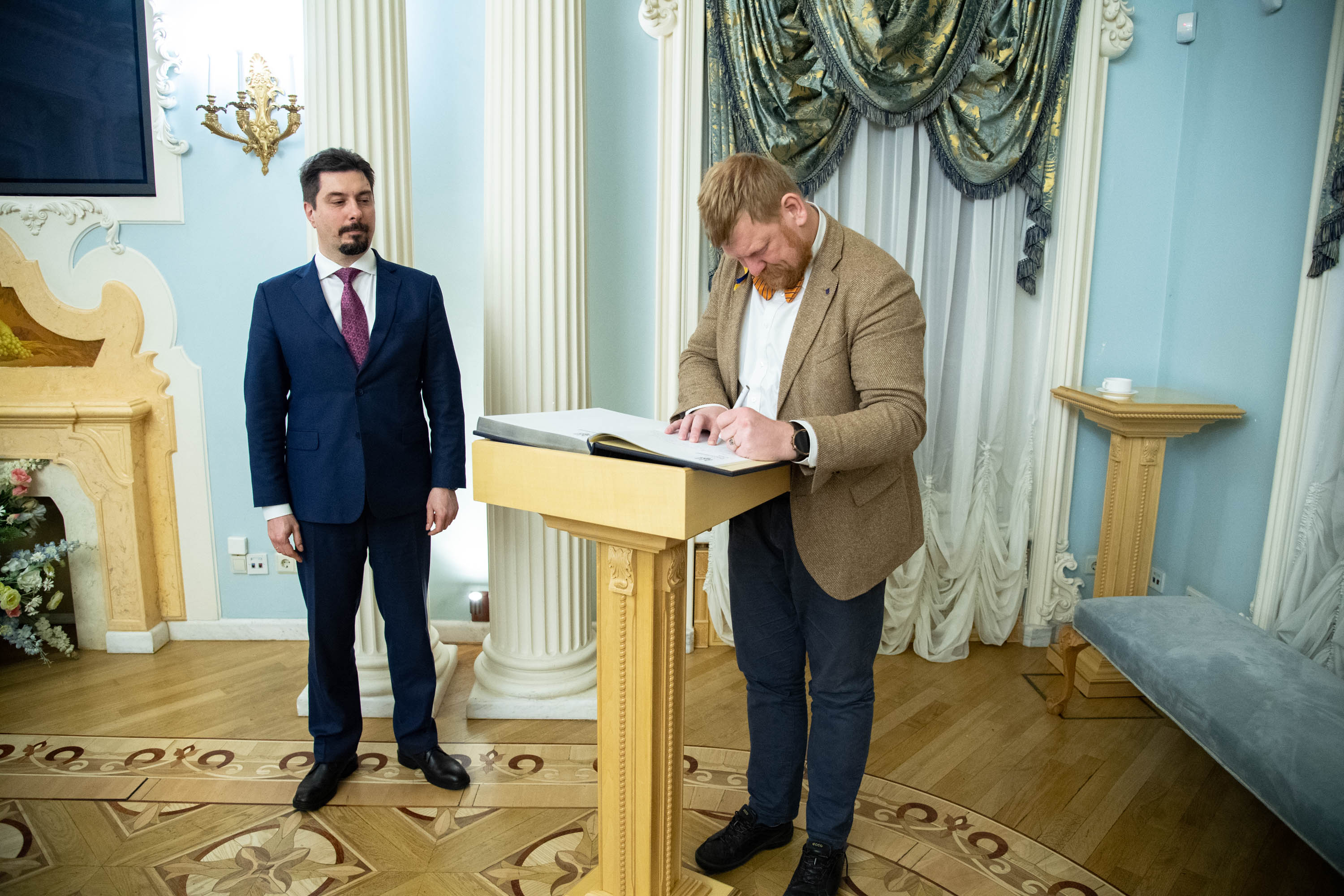Contact center of the Ukrainian Judiciary 044 207-35-46

The establishment of an ad hoc international tribunal for the crime of aggression against Ukraine is a complex challenge to the international security system. But this system proved ineffective at the start of Russia's full-scale invasion of Ukraine. It is therefore necessary to reflect on new instruments of global security that would prevent such situations. The establishment of an ad hoc international tribunal could be a signal to all countries that the organizers of the aggressive war will be punished.
This was emphasized by the President of the Supreme Court Vsevolod Kniaziev during a working meeting on November 23, 2022 with the Prosecutor General of the Republic of Estonia Andres Parmas, which was devoted to the issue of counteracting war crimes committed during the Russian armed aggression against Ukraine.
The meeting was also attended by judges of the Criminal Cassation Court within the Supreme Court Lev Kyshakevych, Viktor Ostapuk, Head of the Division of International and Legal Cooperation of the Supreme Court Lina Hubar, and Assistant to the President of the Supreme Court Dmytro Davydenko.
Vsevolod Kniaziev thanked the Prosecutor General of the Republic of Estonia and the Estonian people for supporting Ukraine in its fight against Russian invaders from the first days of the full-scale war. The Estonian Government was among the first to support Ukraine in its aspiration to become a full member of the European family. It is the irreversibility of the European and Euro-Atlantic course of Ukraine, the orientation towards the democratic values of the progressive world that became the reasons for Russia to start this aggressive war.

The SC President emphasized the need to find new tools to counteract Russia’s crimes. Recently, the NATO Parliamentary Assembly called for the creation of an ad hoc international tribunal on Russia's aggression and recognized it as a terrorist state. The creation of this tribunal is important in order to hold the top political and military leadership of Russia accountable for committing the crime of aggression against Ukraine. However, it is obvious that the main burden of criminal proceedings on war crimes and crimes of aggression will fall on the shoulders of the national courts.
Vsevolod Kniaziev also said that the European Parliament had recognized Russia as a state sponsor of terrorism. This is important in view of the development of effective mechanisms for full reparation by the aggressor of the damage caused to Ukraine.
"Ukraine today is at the forefront of the fight against the Russian regime, dictatorship and totalitarianism, and our people are dying so that the war does not spread further to Europe," the SC President said.
Andres Parmas assured that the Estonian government and people were clearly aware of Ukraine's role in its struggle for a free world and of the consequences if Ukraine did not survive in this struggle, therefore Estonia was doing everything in its power to prevent this.
The Prosecutor General of the Republic of Estonia said that Ukraine could also count on legal cooperation, in particular, the Prosecutor General's Offices of Ukraine and Estonia were closely cooperating in the investigation of war crimes and crimes of aggression committed by the Russian military on the territory of Ukraine. He also came to Kyiv in order to personally confirm his support and to assure that their help would not be limited to words only.

Andres Parmas has long been involved in international criminal law and liability for crimes of aggression as a scientist. It is personally important for him that the ad hoc international tribunal for the crime of aggression against Ukraine should be held, and the perpetrators should be fairly punished. At the same time, he is convinced that there should be no legal arguments against the creation of such a tribunal, because even the Russian Criminal Code provides for liability for crimes against the peace and security of mankind. Every person with a legal education understands that these are the crimes that Russia is committing in Ukraine.
Lev Kyshakevych expressed hope for further fruitful cooperation between Ukraine and Estonia at all levels. He noted that at the moment the national judiciary was working in extreme conditions doing everything in its power to bring Ukraine's victory closer. The speaker said that one of the pressing issues was to delimit jurisdiction between the ad hoc international tribunal and national courts. At the same time, judges of criminal jurisdiction do their best to prepare for these proceedings. In particular, now judges of all instances are undergoing extensive training to improve their qualifications on issues of international criminal and humanitarian law. “We believe that light will overcome the darkness brought by the Russian aggressor,” Lev Kyshakevych is convinced.
The institutional cooperation between Ukraine and Estonia takes place not only at the level of the highest bodies of the prosecutor's office but also between the supreme courts. This cooperation began long before the full-scale invasion, and in October the delegation of the Supreme Court paid a study visit to the Estonian Supreme Court to deepen cooperation and exchange experience. Viktor Ostapuk spoke about this visit in more detail. He assured that the national courts were ready to deal with a large number of war crimes and crimes of aggression proceedings.
At the conclusion of the working meeting, Andres Parmas made an entry in the book of honored guests of the Supreme Court.
